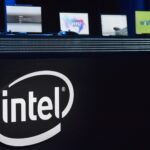The promise of quantum computers appears to be that they will upend modern computing as we know it. With exceptional computational power, they’ll be performing feats unimaginable for any classical supercomputer.
The reality of quantum computers hasn’t quite lived up to its hype, however. Claims of “quantum advantage”—problems regular computers can’t solve but quantum computers can—draw criticism from both skeptics and enthusiasts in the field. Certainly, we’ve seen genuinely impressive advancements, both theoretical and experimental, but many have been contrived “feats” with little real-world applicability.
I’m inching toward becoming an enthusiast. But even for me, parsing through the—let’s face it—sometimes overhyped noise feels tiresome and pointless. So let’s take a step back. What will quantum technology really do for us? How far have we come? And how should we handle the flow of PR on the sixth so-called ultimate quantum breakthrough of the week? To discuss these questions (or rather, to sift through the noise), Gizmodo traveled uptown to IBM’s Manhattan office to chat with Jerry Chow, director of IBM Quantum. The following conversation has been slightly edited for grammar and clarity.
Gayoung Lee, Gizmodo: Okay, imagine I’m someone who is just like, “Oh, quantum computing is a load of nonsense.” Why should I care at all about quantum advantage?
Jerry Chow: In the end, I think our goal is to bring useful quantum computing to the world. And a big part of quantum computing is that we have the opportunity to build differentiating computation over what exists today. There’s a mathematical statement to that, or there are provable algorithms that really show that quantum computing can really [outperform] classical computing, like factoring large numbers for breaking encryption or simulating very complex molecular structures, the Grover’s algorithm, and all that pen-and-paper provable direction.
But another question is, what can we do with the things that people are already building? That’s very far apart from saying that there’s an advantage for a particular kind of problem, or it’s an advantage in terms of being better than all classical techniques that you might throw at it. When you want to solve a problem, you have at your disposal the GPUs, CPUs, all the world’s computers, and all the world’s algorithms to throw at that problem, right?
Quantum advantage, really, is that we can now use quantum computing plus what we have available to us—classical resources—to solve a problem cheaper, faster, or more accurately.
Gizmodo: That’s quite the departure from that popular press hook that goes, “Quantum computing will change computing forever!”
Chow: I see quantum advantage more as something incremental. It’s not that it necessarily changes everything that we can compute. That’s also how a lot of GPUs [graphics processing units] also scaled up. Obviously they were used for games—maybe a niche area—but they really got large with national computing strategies leveraging it for clustered HPCs [high-performance computers] and for people studying molecular structure, cosmology, and high-energy physics problems that use a lot of computational capability. We expect something similar too, for quantum to now be an “augmented tool.”
Gizmodo: The idea of augmentation is really interesting, because the two—classical and quantum computers—are inherently connected, right? Confirming that quantum computers work properly requires cross-checking using classical computers. How do researchers leverage this relationship to their benefit?
Chow: That’s an absolutely important part of how this all happens. Everything is interconnected with classical computing. The only way we know how to experience computation is classical—we put classical inputs in, and we take classical inputs out. Quantum computers use quantum mechanics and quantum circuits to explore some exponentially large space, but in the end we’re performing measurements that turn everything back into classical outputs that we then further process or use or leverage in parts of our computation using other parts of our computational arsenal. People shouldn’t fear that quantum will replace classical!
Gizmodo: IBM’s clearly a big player in this field, and you’ve been involved with its quantum research for 15 years. What’s something you’re particularly proud of in the realm of realizing that approach to quantum advantage?
Chow: When I started, we had maybe eight to ten people, very much focused on just building better devices. Then around the mid-2010s, we made the decision to take what we’ve built and actually put it on the cloud to take things out of the physics laboratory and into a computational experience. Suddenly, we started thinking less about it as turning knobs and controlling voltages and more in terms of how to actually use this as a computational tool and computational platform. Today, most of our systems are deployed in quantum data centers around the world as well as on client locations.
And we’re starting to see a lot of that engagement. For example, our collaborators from the RIKEN Institute in Japan are using quantum plus their HPC to study molecular structure. Since then we’ve been able to start to push that energy level [needed for calculations] down closer and closer to this hallmark level of what’s best done classically, at which point we start to really be able to do these comparisons.
Gizmodo: What’s an important part of IBM’s strategy in this field?
Chow: Now, just building it is not enough. We need to derive quantum computers’ usefulness, and a big part of that is the community. We need them to really demand the necessity for advanced computers and work with us to find quantum advantage and useful applications. That’s a big part of our ecosystem strategy and why we have a quantum network of nearly 300 members. We’re not the industry experts in various verticals, but the opportunity is there for health care, life sciences, oil and gas, and energy industries.
Gizmodo: So quantum computers aren’t actually a thing of the future. They’re already here.
Chow: Yes. Quantum computers are real things that are usable. Obviously there’s a lot of marketing, a lot of buzz out there. But also, like, literally, you can go and run quantum circuits for free on our machines over the web. There’s so much to learn in terms of learning content that’s out there. There’s a huge community base of people to help you get started. You can tell ChatGPT to install Qiskit. People don’t need to just experience it through marketing; get your hands dirty!
Gizmodo: Okay. If quantum advantage is incremental, what, then, is the next quantum milestone? What are you most looking forward to in the next ten, maybe five years—or even in the next few months, perhaps—for quantum computing?
Chow: We’re already driving towards a new device that we want to introduce to users by the end of the year, called Nighthawk. I think the next big milestone will probably be a series of milestones from the advantage point of view, where you’re going to see more and more “sticks” in the ground of running more complex circuits using quantum computers, with classical tackling back, so this back-and-forth over the next year. We’ll be deeply engaged with the high-performance computing community.
Read the full article here












